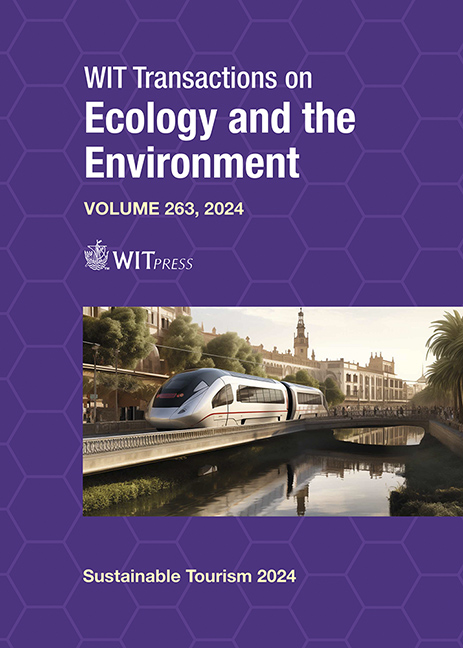ARE OCEAN USERS OCEAN LITERATE? A CASE STUDY OF RECREATIONISTS AND TOURISTS IN CAPE TOWN, SOUTH AFRICA
Price
Free (open access)
Transaction
Volume
263
Pages
12
Page Range
269 - 280
Published
2024
Paper DOI
10.2495/ST240221
Copyright
Author(s)
SERENA LUCREZI
Abstract
Non-consumptive recreation and tourism in or by the ocean, from scuba diving to snorkelling, have been regarded as generating memorable wildlife interactions, place attachment, nature connectedness, awareness of environmental problems, concern for environmental degradation and ocean literacy. The latter is the understanding of the influence of the ocean on people and of people on the ocean. Ocean literacy can foster environmental stewardship, and more responsible use of blue spaces for tourism and recreation, including fragile ecosystems. However, it is not guaranteed that marine tourists will be adequately ocean literate. This study evaluated levels of ocean literacy among 83 ocean-based recreationists and tourists in Cape Town, South Africa. This location offers numerous opportunities for ocean recreation and tourism such as scuba diving, free diving and snorkelling. A semi-structured interview was used to collect data at a tourism organisation offering these activities between January 2023 and January 2024. The participants’ narratives, audio-recorded with their consent, were coded and analysed using thematic analysis and descriptive statistics. The participants were generally ocean literate, although some principles of ocean literacy were more familiar than others. Participants were mostly aware of provisioning ecosystem services of the ocean and human impacts on the ocean. The results of this study demonstrate that while ocean-based recreationists and tourists acknowledge the general importance of the ocean, more education is required to generate awareness about the inextricable link between the ocean and humankind, with a focus on the total dependence of people on the ocean and the need to be a part of strategies to mitigate damage to the ocean, its features, and ecosystems.
Keywords
environmental knowledge, eco-tourism, marine ecosystems, ecosystem services, ocean threats, environmental education, ocean stewardship





